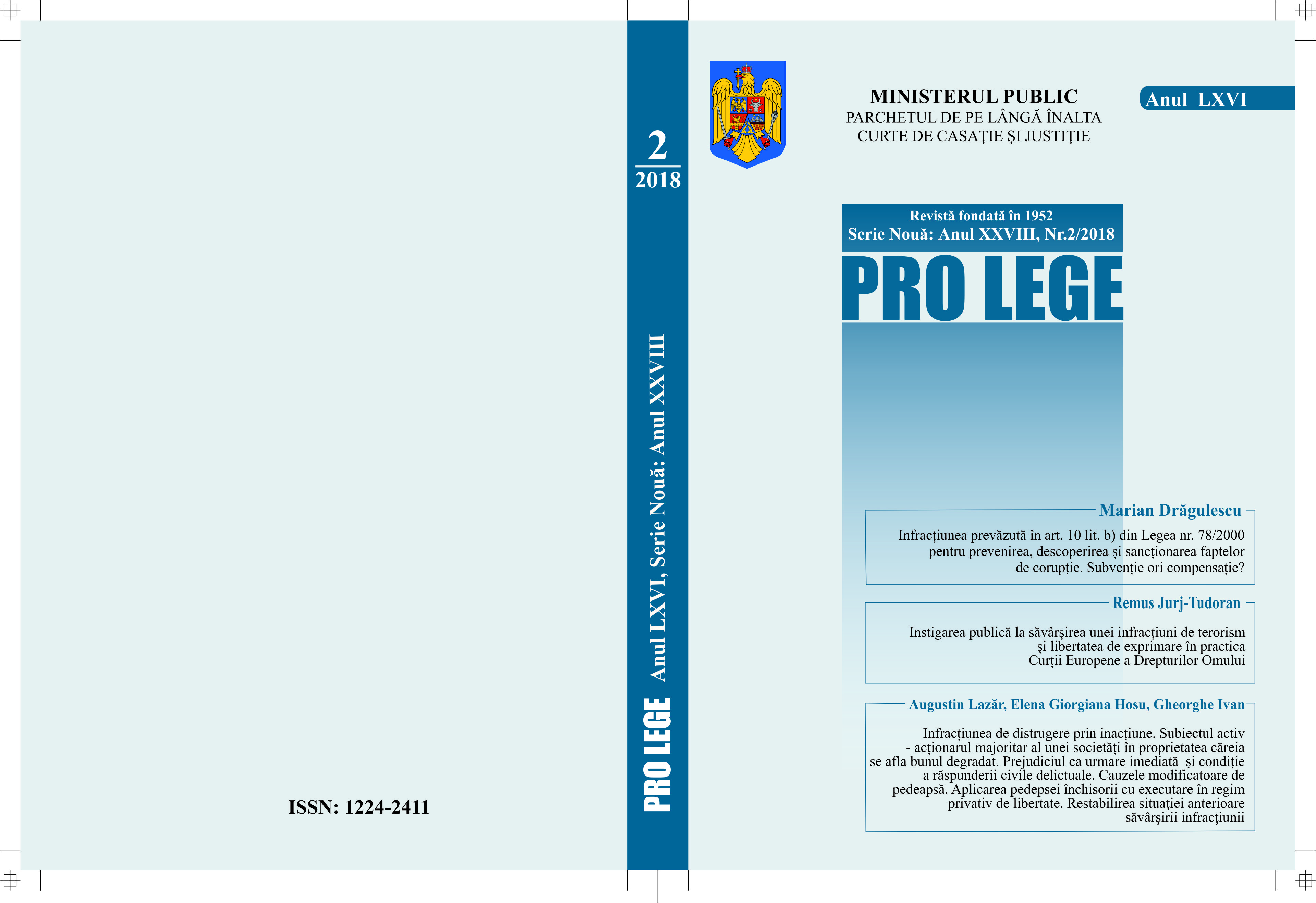Lipsa din cuprinsul actului de sesizare a organului de urmărire penală a codului numeric personal al petiționarului. Indicarea persoanei vătămate pentru prima dată în cuprinsul actului de sesizare a instanței
Lack in the content of the denunciation of the personal numeric code of the denouncer. Indicating the injured persone for the first time in the indicting act
Author(s): Valentin-Cristian StefanSubject(s): Law, Constitution, Jurisprudence
Published by: Universul Juridic
Keywords: denunciation; lack of the denouncer personal numerical code; injured person; indicating it for the first time in the indictment act;
Summary/Abstract: 1. The provisions related to the content of the denunciation, the examination of the notification and the commencement of the criminal investigation regarding the offense shall be placed under the protection of the relative nullity. So, in order for this sanction to be enforced, it is necessary for the irregularity to cause an injury to the defendant's rights, which can only be removed by abolishing the act. The commencement of criminal investigation regarding the offense, based on a denunciation lacking the personal numeric code of the denouncer, is without prejudice to any right that the defendant has in the criminal proceedings. The lack of the personal numerical code of the denouncer does not engage the relative nullity of the denunciation, so that the relative nullity of the criminal investigation acts, the exclusion of the evidence administered in the criminal investigation phase or the illegality of the indictment act can not be questioned. 2. Hearing the injured person is a matter of solidity, not of legality, of the criminal investigation phase. It is subordinated to the general conditions provided by the law in the matter of evidence: relevance, convincing, utility. The need to hear the injured person can not be invoked in the preliminary chamber procedure, because the way in which the legal provisions that lay down the conditions for accepting the evidence exceed the scope of this procedural phase. Indicating the injured person for the first time in the indictment act, which can result in its impossibility to form a civil party and to require the civilly responsible party to enter the trial, can not be invoked by the defendant in charge of an offense remaining in the form of the attempt. Under a first aspect, in the case of a danger offense, an application to form a civil party and a requirement the civilly responsible party to enter the trial are inadmissible, because, as a rule, the condition that the offense has caused a damage is not fulfilled. Under a second aspect, the irregularity consisting in indicating the injured person for the first time in the indictment act, which can be analyzed from the perspective of the legal regime of the relative nullity, can be invoked only by the procedural subject whose rights are harmed, that is by the injured person, or by the preliminary chamber judge.
Journal: Revista Pro Lege
- Issue Year: 2018
- Issue No: 2
- Page Range: 179-186
- Page Count: 8
- Language: Romanian

